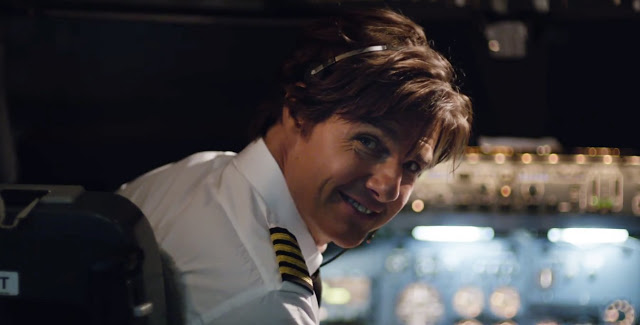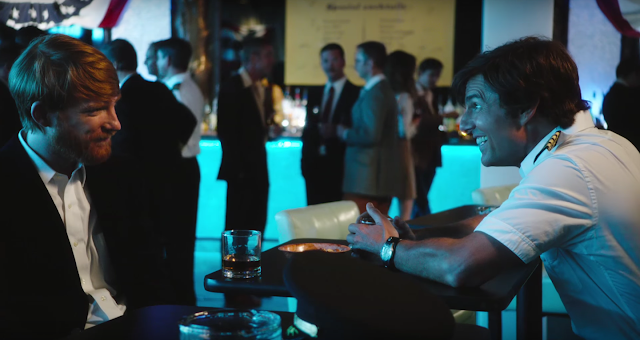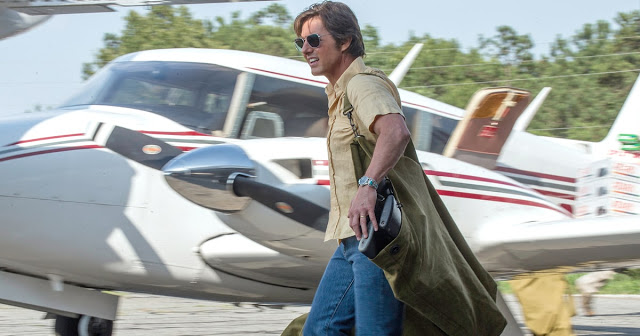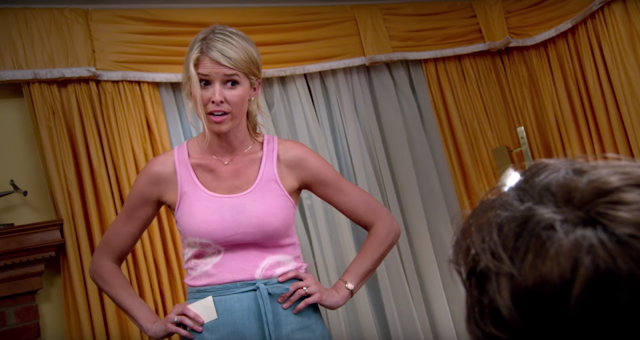By all rights, American Made should play as a tragedy—a sobering study of moral decay and rampant corruption that can only conclude in sadness, irony, and death. Its hero is Barry Seal, a commercial airline pilot-turned-drug-runner who liaised with Colombian traffickers on behalf of the CIA, and who became the target of numerous investigations by an alphabet soup of domestic law enforcement agencies (the DEA, FBI, and ATF all sought their pound of flesh). From this description, you might suspect that the movie is depressing. Quite the opposite—it’s a blast. That’s because its director, the perennially underappreciated Doug Liman (Swingers, The Bourne Identity), approaches the material less like a cop or historian than an end user. So while American Made studiously chronicles Barry’s rise and fall, it isn’t principally interested in bringing its protagonist to justice. It just wants to get you high.
This is refreshing. Cinema suffers from a glut of grim gangster movies, and while many of them are compelling, they often blur together in their fetishized violence and relentless dourness. American Made, by contrast, proceeds with a lightness of touch that, paradoxically, highlights its darker undertones. It leaves a mark precisely because it isn’t trying too hard.
Or maybe it’s all in the casting. The spectrum of opinions on Tom Cruise is vast—is he a genius or a fool? Is he committed or vain?—but he’s the perfect choice to play Barry, and not just for the meta charge it brings seeing him in the cockpit again. Sure, Barry scans as an obvious heir to Pete “Maverick” Mitchell, the cocksure flyboy from Top Gun who felt the need for speed and whose ego wrote checks his body couldn’t cash. But while Cruise is, unfathomably, just as good-looking now as when he serenaded Kelly McGillis three decades ago, he’s a cagier actor, relying less on broad gestures than on subtle expressions and inflections. As Barry, he combines his trademark megawatt charm with a wonderful bafflement, as though he scarcely believes his luck. Cruise’s natural magnetism sells Barry’s virtuosity as a pilot, but he also taps in to the character’s more restless side—the watchfulness, the intelligence, the fear.
The coattails of Cruise’s star power—the way he effortlessly sweeps up the material surrounding him and cranks it into a higher gear—proves crucial here, because structurally speaking, American Made is your usual based-in-fact, stranger-than-fiction period yarn. The screenwriter, Gary Spinelli, wisely compresses the story’s time frame (it runs from the late-’70s to the mid-’80s), but he’s still faced with the unenviable task of condensing a decade of a man’s life into a tidy three-act narrative. The movie begins with a bored Barry trekking around the country for TWA, monotonously welcoming his fares to each new destination with a glazed smile. (In a nice character-establishing touch, during one such flight he randomly turns off the autopilot—generating considerable turbulence for his passengers—just to give himself something to do.) One unexceptional night in an indistinguishable airport, he’s approached by a bearded redhead who calls himself Schafer (Domhnall Gleeson, nicely relaxed), who casually inquires whether Barry might be interested in flying covert recon missions over Central America for the CIA.
From there, American Made leaps into a flurry of expository activity, frantically recounting Barry’s transformation from unfulfilled lackey to government agent to enterprising criminal. It’s a lot to absorb, as Liman introduces us to high-profile historical figures—Manuel Noriega appears briefly, as does a surly-looking kingpin by the name of Pablo Escobar—while racing to illuminate the byzantine machinations of Barry’s various schemes, which involve dumping cocaine into Louisiana, smuggling AK-47s into Colombia, and even assisting the Nicaraguan Contras. Given the sheer volume of information he needs to convey, Liman can’t help but resort to the necessary evil of the voiceover, though he does give it some minor sizzle by having Barry narrate his explanations into a cheap camcorder in a nondescript motel room, the significance of which is gradually revealed. Procedurally, American Made feels a bit like a supersized episode of Netflix’s Narcos—Mauricio Mejía, the actor who portrays Escobar here, played one of Don Pablo’s rival traffickers on that show—methodically walking us through the ins and outs of the intercontinental drug trade. (Speaking of Netflix, Barry’s sudden, panicked migration to a backwater town in Arkansas to evade the authorities mirrors the setup of Ozark.)
But while the film is historically informative, Liman understands that he’s a director making a movie, not a professor delivering a lecture. And American Made, for all its edifying data, is aggressively cinematic. Liman’s prior collaboration with Cruise, the terrific Edge of Tomorrow, was ingenious in part because its editing was so precise, but here his style is intentionally choppy, an occasionally annoying touch that nevertheless prevents the proceedings from slipping into rote docudrama territory. Similarly, the handheld cinematography (by César Charlone, Fernando Meirelles’ regular DP) is probably sloppier than it needs to be, but it helps emphasize the film’s frenzied pace as it crescendos to near-certain disaster, the many bricks of Barry’s chaotic hustle threatening to collapse into rubble.
Beyond that, there’s a joy animating Liman’s filmmaking, a liberating sense of freewheeling bravado that suggests he’s genuinely committed to showing his audience a good time. Some of this is tonal command; between the film’s pop soundtrack and its twitchy energy, Liman ensures that American Made is consistently lively, even during its bleaker stretches. Yet it also stems from the movie’s meticulous details, which capture the absurdity—the black comedy—of Barry’s aw-shucks lawbreaking. In one gripping-but-hilarious scene, Barry attempts to take off his plane on a perilously short runway, while his Colombian cohorts place bets on whether he’ll attain sufficient height or crash into the surrounding trees. In another, Liman briskly illustrates Barry’s lo-fi approach to smuggling, as he drops hundreds of kilos of cocaine through a tiny trapdoor in his jet while anxious onlookers await thousands of feet below. Even the movie’s most kinetic set piece, in which Barry lands his plane in a suburban neighborhood to dodge the DEA, carries its own herky-jerky flavor, building on a sequence in which Barry pilots his craft at an impossibly slow speed, forcing his technologically superior pursuers to run out of fuel.
As thoughtful as American Made is in illuminating Barry’s exploits, it’s less interested in delineating its supporting players. Barry’s wife, Lucy (Sarah Wright Olsen, pert and peppery), makes an early impression as a woman appalled by her husband’s recklessness, but she ultimately recedes into the background as a blandly supportive spouse. More problematic is her brother, J.B. (Caleb Landry Jones, refining the scummy brother-in-law role he began patenting in Get Out), a scurrilous troublemaker who comes off as a pure plot device. Even Escobar and his partners play as one-dimensional villains rather than the scarily charismatic murderers as seen in Narcos.
Yet the thinness of American Made’s secondary characters isn’t all that damaging, thanks to Liman’s shrewd decision to build the movie entirely around Cruise’s captivating performance. From his nonchalance in the face of danger to his magnificent mispronunciation of the word “Medellín”, Cruise fashions Barry into a towering but decidedly human figure—at once slick and sweaty, brilliant and foolish, shamelessly amoral and quietly decent. Barry Seal may have been a criminal, but as played by Cruise, it’s a delight just to spend two hours in his company. You’ll want to be his wingman any time.
Jeremy Beck is the editor-in-chief of MovieManifesto. He watches more movies and television than he probably should.




